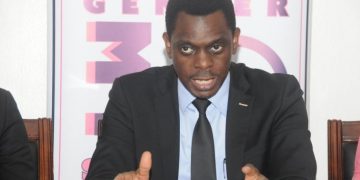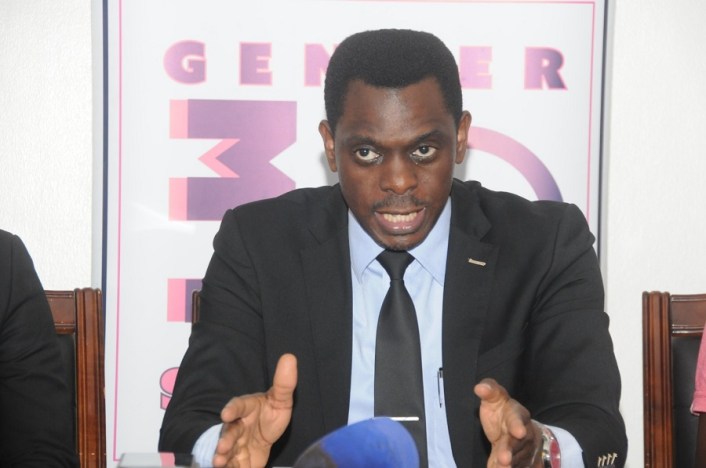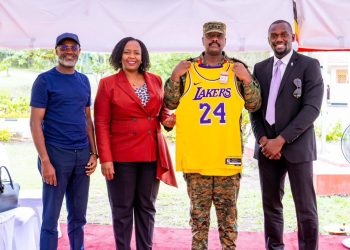The sports sector is currently abuzz with the upcoming Netball elections, which will be preceded by the adoption of a new Netball constitution.
Last year, Netball descended into leadership turmoil, a topic I will not delve into as it’s a lengthy story on its own.
Instead, I’ll focus on the new disagreements surrounding the handling of Netball business by the “Normalization Committee” (NC) led by Mr. Moses Mwase.
It is no secret that Netball is now a shadow of its former self. There’s very little activity, and it is rarely in the press. Only God knows what the previously active and skilled players are up to after several months of inactivity.
I have advised NC Chairman Mwase to release a clear roadmap to the Netball election, which will return the sport to female leadership, under which it thrived impressively.
Although Mwase has now done this, Netball stakeholders are raising concerns about some provisions in the proposed new Netball constitution.
These include a name change from “Uganda Netball Federation (UNF)” to “Netball Uganda (NU)” and a clause that top leadership positions in NU should only be contested by individuals with a Diploma in Sports Administration.
This same requirement was included in the Uganda Olympic Committee (UOC) constitution, effectively excluding many capable leaders who could have developed Ugandan sports.
This is likely the rationale behind Mwase’s position, as he holds both the “Advanced Sports Management Course” (ASMAC) Diploma offered by the UOC and a recently acquired “Executive Masters in Sports Organizations Management” (MEMOS).
The diploma requirement was introduced under former UOC President William Blick during a time of conflict between the UOC and the National Council of Sports (NCS).
NCS leadership, under former General Secretary Nicholas Muramagi, sought to take over the UOC, sparking political battles within UOC member sports federations, including my own Table Tennis.
The UOC took advantage of this unrest to introduce the diploma requirement, as many of the NCS’s desired leaders lacked such qualifications.
While this move worked in the UOC’s favor at the time, it has since created a situation where UOC leadership positions are reserved for a few diploma holders, who are often unable to lead member federations towards better financial welfare.
UOC member federations face significant development challenges, such as limited access to financing, sports infrastructure, and equipment.
Currently, nearly half of the UOC member federations are in Category 5 of government funding, receiving only 10 million Ugandan shillings annually—a sum too small to be of much use. You can’t entirely blame the Ugandan Parliament, as these Olympic sports federations struggle to maintain regular activity and visibility.
This is embarrassing for the UOC, as Olympic sports should be at the forefront of performance in Ugandan sports. The fact that so many UOC federations fall into Category 5 is a sign that the UOC leadership has failed to address their challenges. Despite receiving about 3 billion Ugandan shillings in funding annually, the UOC has done little to help its member federations become more active and visible.
Instead, UOC funds are often spent on workshops and seminars, where there is much sitting, talking, eating, and drinking, but little progress in providing federations with the necessary equipment, competitions, and infrastructure. The UOC leadership claims that there are no funds for these essential activities, but this is not entirely true—a debate for another day.
Now we see Mwase, who is also a UOC vice president, attempting to export this diploma requirement to Netball. All top UOC leaders hold these diplomas, but their federations are not receiving meaningful assistance. If not for government support through the NCS, nearly all UOC federations would be struggling with severe dormancy.
The issue with diploma requirements in Uganda today is that they can limit leadership positions to those unable to advance the federations due to their lack of funding or inability to secure resources. We have clear examples of such individuals in the UOC—people focused more on securing travel opportunities and allowances while their federations face extinction.
The UOC is proof that diplomas in sports management are not what Ugandan sports development needs right now. Mwase would do well to remove this provision from the Netball constitution so that capable individuals are not locked out of leadership simply because they lack a diploma.
I agree that sports leaders need some level of sports knowledge, and for this, I’ve advised Mwase that the maximum requirement should be the Sports Administrators Course (SAC), a three-day certification course that anyone can complete.
This course should be readily available to anyone interested in becoming a sports leader, ensuring that this requirement is not weaponized by those wishing to exclude potential leaders.
The writer is the President of the Uganda Table Tennis Association (UTTA) and Secretary General of the Union of Uganda Sports Federations and Associations (UUSFA).





























